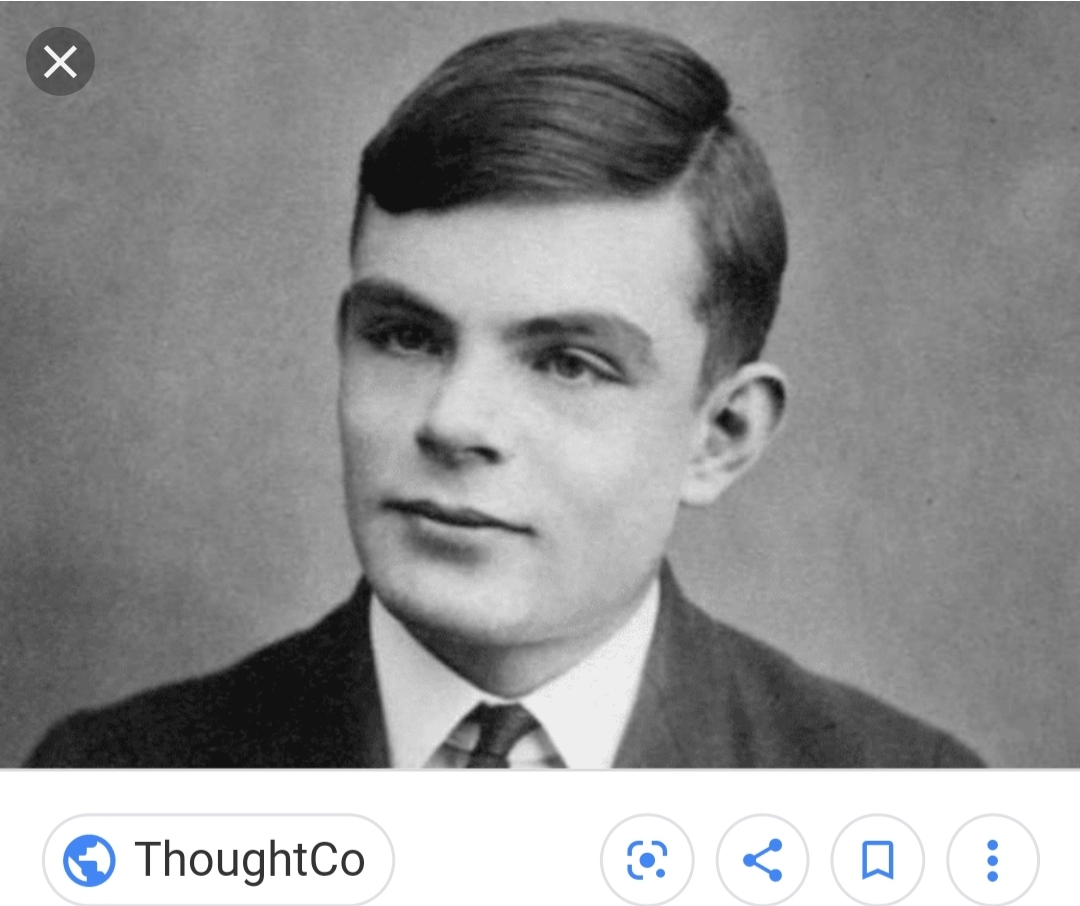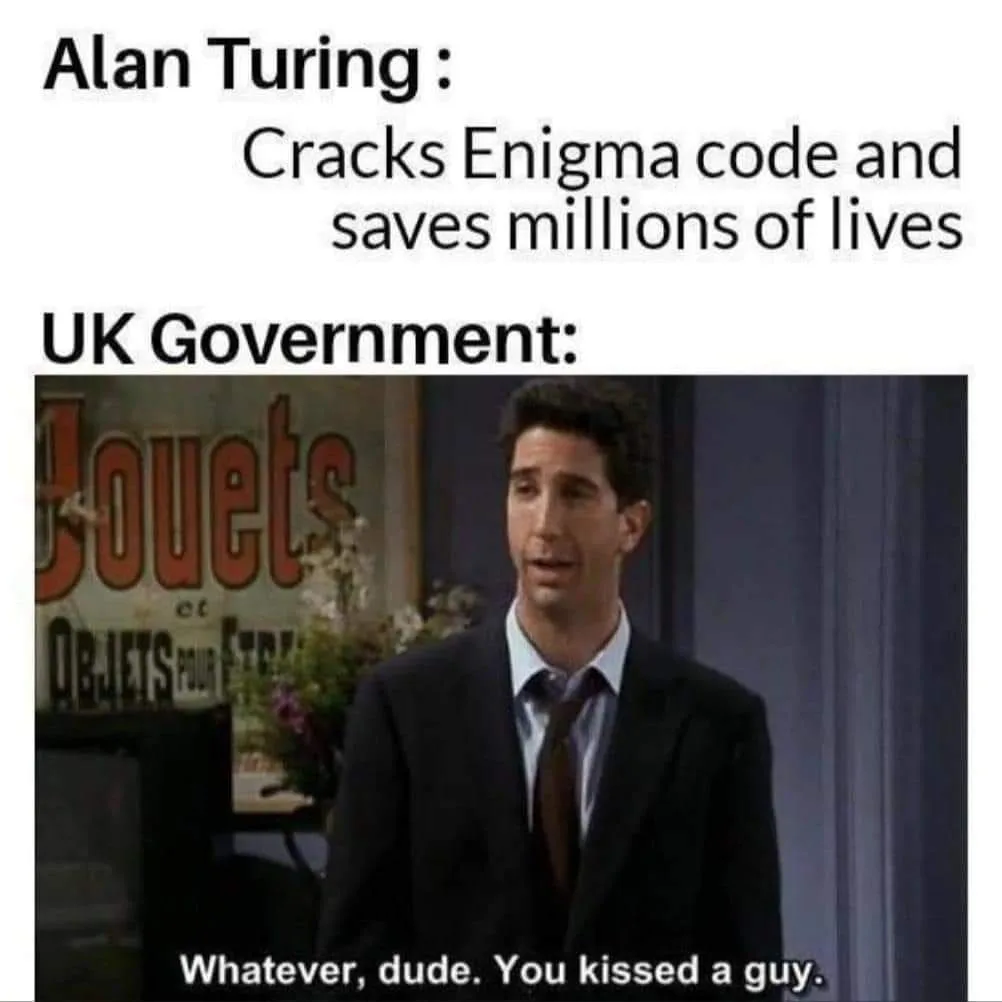

25) Alan Turing
Brilliant Doesn't Even Begin to Describe Him
Born: 23 June 1912, London, United Kingdom
Died: 7 June 1954, Wilmslow, Cheshire, United Kingdom
Today Alan is known as the Founder of Computer Science, though he wasn't known that way in his own lifetime.
He struggled in school and dealing with his family's demands on him, but he soon found solace in the sciences and a boy a year older than him named Christopher. The impact of Christopher and Alan's relationship was profound, and only became even more so by Christopher's untimely death in 1930. For at least the next three years, Alan spent his time positing the relationship between the mind, death, and matter itself (deeply philosophical stuff that hurts my head to think about).
I'll be honest with you from the get-go. Most of Turing's work is far too complex for my brain to understand--I am a Humanities Brain not a Mathematical one. Basically, Turing invented something called the Turing Machine which is the basis of modern computers.
During World War II, he was a part of the secret team of British codebreakers gathered to crack the German Enigma Code. They worked at Bletchley Park. His work there has been chronicled in the 2014 Film starring Benedict Cumberbatch: The Imitation Game, I've linked the trailer in this article.
While working at Bletchley Park Alan did in fact propose to Joan Clarke, but he later told her the truth. He could not marry her because he was homosexual.
In March of 1952, Alan was arrested and went to trial after it came to light that he'd had a sexual relationship with another man in Manchester. Instead of using a "defense" or claiming he was innocent, Alan instead decided to tell the truth--there was nothing wrong with what he had done and there was nothing wrong with being gay.
Instead of going to prison Alan opted for injections for a year that would lower his libido, chemical castration. Around this time Alan also had his security clearance revoked as "known homosexuals" were not allowed clearance.
He was found dead after ingesting cyanide. Alan's mother believed it was accidental, but the coroner deemed it was suicide.
In July of 2019 it was announced that Alan will be featured on the £50 banknote in the United Kingdom, the note will enter circulation in 2021.
Badges Earned:
Find a Grave Marked
Located In My Personal Library:
Enigma Code Breakers: How Breaking the Nazi Code Helped Win World War II by Michael Kerrigan
Inferno: The World at War 1939-1945 by Max Hastings (He is briefly mentioned)
The Who, the What, and the When: 65 Artists Illustrate the Secret Sidekicks of History by Jenny Volvovski, Julia Rothman, and Matt LaMothe
National Geographic History Magazine Article "The First Supercomputers" (January/February 2025 Edition)
Sources:
https://www.turing.org.uk/publications/dnb.html
https://www.findagrave.com/memorial/12651680/alan-mathison-turing
